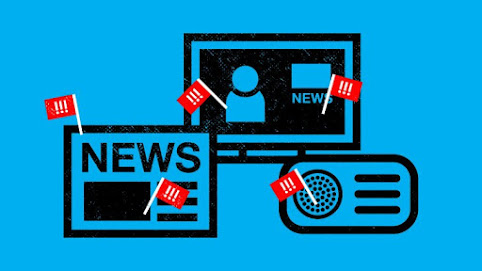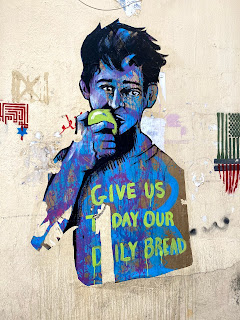Addressing the Medication Shortage in Lebanon: Current Situation & Mitigation Recommendations
Problem
Lebanon is currently facing the harshest economic crisis since the 1975 Civil War (Sanders, 2020). The devaluation of the Lebanese Lira, US dollar shortage, in addition to the black-market currency trade has severely impeded medication procurement and import. In fact, Lebanon has halted the import of more than 50% of medication (Lazkani, 2020); and since September of 2020, less than 10% of the country’s medical supply needs have been fulfilled (HRW, 2020). Moreover, it is expected that the cost of medication will skyrocket by a whopping 241% once subsidies are lifted (WFP, 2021).
This devaluation, coupled with the central Banque du Liban’s (BDL) suffocating laws regarding imports of medication, has not only affected medication procurement and dispensing, but has also instilled fear and affected consumer purchasing behavior (Astih, 2021). The delay in pharmacies receiving medication has led to shortages in pharmacies, causing inequitable distribution of medication and consumers stockpiling medication at home (Hekimian, 2020); particularly those pertaining to chronic conditions such as diabetes and hypertension.
These hoarding practices arose in fear of stock-outs and raised prices when subsidy is lifted irrespective of the Ministry of Public Health’s (MOPH) assurance that subsidies for chronic disease medication will remain the same (Astih, 2021). Likewise, pharmaceutical warehouses and pharmacies have also resorted to stockpiling until subsidy is lifted in order to sell at a profit margin estimated 6 times higher than currently (Astih, 2021), and even smuggling to sell illegally outside of Lebanon, ultimately feeding back into the vicious cycle of medication shortage (El-Hage, 2020; Yassine, 2020).
So what evidence-based recommendations can be put in place?
It is key for all recommendations that the MOPH strengthens its role in monitoring and enforcing policies; as well as regaining and strengthening public trust. It is worth noting that Lebanon does not have an established national pharmaceutical policy (Abdel Rida, Ibrahim, & Babar, 2019), however, several recommendations mentioned below have already been applied in Lebanon, as seen in the implementation considerations. That being said, it is crucial that the MOPH reflects on its existing capacity, resources, and systems for adequate surveillance and identification of gaps and opportunities for strengthening these aspects. This also calls for a multi-sectoral approach with involvement of other key ministries and stakeholders for improved coordination, and subsequently, implementation.
Based on the evidence, policy recommendations are put forth as follows:
- Strengthening medication rationing measures: This can be done through collaboration between the different governmental entities, such as the MOPH and the ISF to reduce smuggling and hoarding practices.
- Presenting alternative drug options with minimal treatment differences and financial repercussions: The MOPH plays a crucial role here in reinforcing the Unified Medical Prescription, and the Substitution Drug List to aid physicians when prescribing medication as to not compromise patient safety.
- Modifying the existing external reference-based pricing policy system: Having reference countries of higher GDP and different exchange rate fluctuations without adjustment, as in the case of Lebanon, induce artificially higher prices which further exacerbate the economic crisis. Moreover, the importance of modifying the countries in the basket to reflect similar economic status and health system objectives lies in the fact that appropriate selection of countries will result in more appropriate prices for medication. Changing calculation method is especially vital when taking into consideration that the pricing requires not only exchange rate adjustment, but purchasing power as well, which has significantly changed since the beginning of the economic crisis (Kanavos, Fontrier, Gill, & Kyriopoulos, 2017).
- Empowering local pharmaceutical firms for production of medication: Local production of medication improves local access to medication, and offers steady supplies when encountering import disruptions (WHO/HAI, 2011). In addition, it opens up more opportunities for foreign direct investment (FDI) and exporting medication as capacity improves (Kaplan, Ritz, & Vitello, 2011). Local manufacturers have received support from the government through subsidized loans, tax reductions for up to 10 years, 2% custom tax on resources for new firms, and tax exemptions on imported raw materials (IDAL, 2018). The MOPH should continue the efforts through promoting locally manufactured medication to physicians, pharmacists, and the public, as well as reinforce the use of the unified prescription form and the Substitution Drug List to support generic medication.
Share your opinion below!
Until next time,
S
References
Abdel Rida, N., Ibrahim, M., & Babar, Z.U.D. (2019). Pharmaceutical pricing policies in Qatar and Lebanon: narrative review and document analysis. JPHSR, 10. 277–287. doi: 10.1111/jphs.12304
Astih, P. (2021). After Medicine Shortage, Lebanese Now Scramble to Find Baby Milk. Asharq Al-Awsat. Retrieved from: https://english.aawsat.com/home/article/2750976/after-medicine-shortage-lebanese-now-scramble-find-baby-milk
El-Hage, A.M. (2020). Drug Storage and Shortages: in Lebanon, The Vicious Circle Sets In. L’Orient Today. Retrieved from: https://today.lorientlejour.com/article/1235589/drug-storage-and-shortages-in-lebanon-the-vicious-circle-sets-in
Hekimian, K. (2020). Coronavirus Outbreak Leads to Panic Buying in Lebanon. Medium. Retrieved from: https://medium.com/@karenhekimian/coronavirus-outbreak-the-global-pandemic-leads-to-panic-buying-in-lebanon-3b82f7c221c6
HRW. (2020). Lebanon: COVID-19 Worsens Medical Supply Crisis. Retrieved from: https://www.hrw.org/news/2020/03/24/lebanon-covid-19-worsens-medical-supply-crisis
IDAL (2018). Pharmaceutical Sector in Lebanon. Retrieved from: http://www.databank.com.lb/docs/Pharmaceutical%20Sector%20in%20Lebanon%20Fact%20Book%202018%20IDAL.pdf
Kanavos, A., Fontrier, A.M., Gill, J., & Kyriopoulos, D. (2017). The Implementation of External Reference Pricing within and across Country Borders. https://doi.org/10.21953/lse.y1tbizsxrl3n
Kaplan, W. A., Ritz, L. S., & Vitello, M. (2011). Local production of medical technologies and its effect on access in low and middle income countries: a systematic review of the literature. Southern med review, 4(2), 51–61. https://doi.org/10.5655/smr.v4i2.1002
Lazkani, S. (2020). Pharmacies in Lebanon Go On Strike To Protest Medicine Shortage. The 961. Retrieved from: https://www.the961.com/lebanon-pharmacies-strike-meds-shortage/
Sanders, L. (2020). Lebanon faces its worst crisis since the civil war. Deutsche Welle. Retrieved from: https://www.dw.com/en/lebanon-faces-its-worst-crisis-since-the-civil-war/a-54094075
WFP. (2021). WFP VAM & Retail/Supply Chain Unit Lebanon: National FSSWG – Situation Analysis. Retrieved from: https://fscluster.org/sites/default/files/documents/20210210_fss_national_working_group_-_wfp_situation_analysis.pdf
WHO/HAI. (2011). WHO/HAI Project on Medicine Prices and Availability. Retrieved from: http://haiweb.org/wp-content/uploads/2015/07/Working-Paper-1-External-Reference-Pricing.pdf
Yassine, H. (2020). Lebanese Authorities Closed Down Pharmacies Smuggling Medicine. The 961. Retrieved from: https://www.the961.com/authorities-raid-pharmacies-smuggling/
Image: https://apnews.com/article/lebanon-medicines-vanish-from-shelves-dbf0319ed8a4f248fb0fb3040c371fdb



Comments
Post a Comment